Schedule a Call Back
Industry 4.0: Transforming auto making processes
 Technical Articles
Technical Articles- Jul 01,18
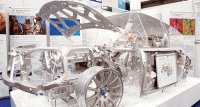
Industry 4.0 – an amalgamation of information technology and manufacturing technologies - is bringing together robots, data and connected devices for creating a productive environment. With its advanced technological solutions for manufacturing, Industry 4.0 is transforming the production landscape in automotive and auto component industry, says Rakesh Rao.
A few years ago, VE Commercial Vehicles Ltd (VECV) - a 50:50 joint venture between the Volvo Group and Eicher Motors Ltd - was looking to increase the capacity of its existing final assembly line at its Pithampur plant in Madhya Pradesh and introduce new variants for exports. In other words, the company - established in July 2008, and maker of commercial vehicles (CVs) and auto components - wanted to increase its productivity and efficiency in the plant.
After evaluating various options on the table, VECV opted for Hi-Tech Robotic Systemz’s automated guided vehicles (AGVs) which acted as an extension to the current conveyor line to accommodate flexibility of new model integration. AGVs are indigenous mobile robots used on the factory floor for automatic and intelligent material movement without any human intervention. By using AGVs, VECV was able to raise the capacity of line by 30 per cent and increase flexibility in operations. AGVs also helped to increase process control by 20 per cent. Today, VECV’s entire assembly line is using these robots.
Advancing development
Example of VECV is not an exception today, as many of the leading automakers are taking advantage of modern manufacturing technologies. Advanced robotics and automation is omnipresent in the automotive industry in India, helping companies increase their productivity multifold. “Robotic applications are enabling manufacturers to respond to sudden changes in demand ever more rapidly – and even manufacture micro-batches of tailor-made products cost-efficiently. It will help the automotive industry in optimising production operations. Robotic applications will also facilitate automatic exchange of real-time data, which will be beneficial to companies,” says Suresh KV, Country Head, ZF India. ZF is a global supplier of driveline and chassis technology for cars and commercial vehicles, along with specialist plant equipment such as construction equipment.
Robots also prove handy when used for automotive manufacturing processes which are hazardous. “Robots and robotic applications can prevent such risks to people working in a production facility. In assembly lines, robots keep workers from exposure to fumes from welding, weld flash and the noise of stamping presses,” explains Suresh KV. Adds Sudhir Gurtoo, Managing Director, Leadec India Pvt Ltd, “We definitely see increase in usage of robotics because of lower automation cost. Also, the labour these days are becoming more demanding and less dependable. In this case, robotics will play crucial role.” The Germany-based Leadec provides technical services to automotive and manufacturing companies to make their production better and more efficient.
With robots becoming more efficient and easy to handle, the demand is on the rise in the automotive industry in India with OEMs and tier 1 supplier being the lead drivers. “In India, the industries buying maximum robots are still driven by automotive sector. Automotive OEMs want their tier-1 and tier-2 suppliers to invest more in robotics. So ultimately, it is driven by OEMs because the tier-1 and tier-2 suppliers can be flexible as they can supply to different OEMs. Thus, the utilisation of robots will always be there. Even if the production at some particular OEM is down, still the tier-1 can supply to other customers,” opines Pradeep Shoran, AGM-Marketing, KUKA Robotics India Pvt Ltd.
Journey to Industry 4.0
Automotive manufacturing landscape is rapidly changing with adoption of digital technologies such as the Internet of Things (IoT) and advanced robotics which are collectively termed as the fourth industrial revolution (Industry 4.0). “Industry 4.0 is the next level of industrial revolution. It can be understood as the full integration and digitalisation of the industrial value creation process. The key drivers for this development are the large amount of data available, rising demand for (mass) customised products, advanced algorithms allowing better real-time and large data analysis, more affordable sensor technologies, and increasing prevalence of communication including wireless technology in the factory,” opines Jeffry Jacob, Partner, Roland Berger Pvt Ltd – a consultancy firm offering services to industries that includes automotive.
Industry 4.0 is of high significance in today's environment as it translates to providing individualised or mass customised products, and leads to significant cost/efficiency benefits and quality improvements. Jacob adds, “Industry 4.0 is, therefore, a holistic concept that affects the whole product lifecycle from the development to the usage phase, and combines a wide set of technologies, at varying levels of maturity. Overall, however, it is a long journey and many of these technologies will take 10 to 15 years to reach maturity in the market.” Industry 4.0 offers an opportunity to revitalise the industry with a strong positive impact of return on capital employed (ROCE). As a result, almost all leading countries have launched Industry 4.0 initiatives today.
Auto industry leveraging Industry 4.0
Automotive industry is at the forefront of the new industrial revolution. “The amalgamation of information technology and manufacturing, gave birth to Industry 4.0 or Manufacturing 4.0. This was one of the biggest revolution for the auto industry. Industry 4.0 brought with it advanced technological solutions for manufacturing auto parts and components. It has brought together robots, data and connected devices for creating a productive environment,” says Suresh KV.
Automotive companies, who see huge potential in Industry 4.0, have been effectively leveraging it already for benefits ranging from engineering speed to sales push. Jacob explains, “Automotive companies plan to leverage Industry 4.0 to further shorten development cycles, develop more attractive products and efficient processes, respond flexibly to individual customisation needs, optimise value chains and obtain productivity gains. Many auto OEMs and suppliers have started implementing Industry 4.0 and several projects are currently in pilot stage.”
Auto companies are typically global by nature and most OEMs and suppliers compete on the world stage. As a result, they are at the forefront in adoption of cutting edge technologies. “We see several leading companies in India wanting to leverage the benefits of Industry 4.0, whether it is for new factory setup or re-alignment of existing plants. Roland Berger has supported many leading companies in India in conducting diagnostic studies for Industry 4.0, as well as developing a detailed roadmap and supporting them in successful implementation,” says Jacob.
Putting into practice
Automotive companies are actively collaborating with partners for setting up Industry 4.0 projects. For example, Mercedes C Class has its rear axle built with human robot collaboration (KUKA robot). More than 50,000 rear-axle gearboxes have been built for Daimler AG as part of an assembly pilot program. The robot is adept at force guided assembly tasks. Daimler has also effectively optimised logistics processes using 'RFID based parts tracking' and optimised cylinder head manufacturing with the help of data mining technologies and real time analytics capabilities.
“At BMW and VW, a new generation of safer, more user friendly robots (Universal Robots) work more closely alongside humans in assembly line as a team. Further, at BMW, the factory workers use a 3D printed thumb that helps them work safely and efficiently with minimum strain on their hands, as well as gesture based quality assurance for painted bumpers. VW is targeting 10 per cent improved efficiency in 2018 by using a digital factory concept, up to date tools, motivation and teamwork,” says Jeffry Jacob.
Similarly, Benteler is working with Universitat Paderborn to develop a self regulating thermal management system for EVs, while Hella is working with Fraunhofer Institute to develop actuator based systems for self-aligning intelligent headlamps to improve road safety.
On a progressive path
Some of the key indicators which determine the relevance of Industry 4.0 is the potential in that specific industry for virtualisation of work processes, level of value added and complexity, game changer and disruptive technologies, and resource efficiency of core processes. “As the automotive industry scores highly on most of these parameters, they are naturally at the forefront of Industry 4.0 adoption. There will be even more widespread use of robotics, advanced and intelligent matters, advanced manufacturing processes, big data and more resource efficient systems,” points out Jacob.
To be a big player in the global manufacturing arena, India needs to start thinking about building Industry 4.0 complaint end-products themselves rather than just providing the back-office or software support. There are already encouraging examples of using advanced manufacturing technology such as the automotive industry where many global brands have set up their manufacturing plants in India.
“Automotive industry is a shining example of how advanced manufacturing, automation and robotics can set an industry apart. The automotive sector alone contributes more than 45 per cent to the country’s manufacturing GDP (and about 7.1 per cent to India’s GDP) and employs approximately 19 million people. Automotive industry has always been the front runner in terms of adopting latest technologies and creates a large impact due to the massive scale at which it operates. The automotive industry is adopting IoT, Blockchain, augmented reality, 3D printing, autonomous vehicles, artifical intelligence (AI) at a rapid pace to set an example for the rest of the industries to follow,” says Abhimanyu Prabhavalkar is Vice President of Oracle’s IoT Applications Cloud Service and IoT Cloud Service Platform development organisation.
Though auto companies in India are moving towards Industry 4.0, the pace is slow as they are exploring the new technologies. Gurtoo says, “There is good lot of buzz in the industry about Industry 4.0. Companies are doing their own studies in understanding and implementing the processes that would take them closure to Industry 4.0. However, it is still in low-growth mode. We do expect a move in coming five years.”
In top gear
Advanced manufacturing technologies will play an indispensible role as the industry moves towards Industry 5.0 - a shift from mass production to mass personalisation. Suresh KV says, “Industry 4.0 has streamlined operations and offered new business opportunities. Its implementation in our country has helped Indian companies to be at par with global standards. Soon Industry 5.0 will also be coming, which will allow customers to customise whatever they want.”
But is industry ready for Industry 5.0? Jacob answers, “We are already, in some sense, moving towards Industry 5.0 when you allow customers to customise what they want. Industry 5.0 takes the concept of personalisation to the next level. Many countries are still on the cusp of Industry 4.0 and have a long way to go in this journey. However, in many cases, we also see the move happening concurrently as we effectively leverage AI, build our factories of the future and simultaneously focus on mass customisation and personalisation. Several companies are already focusing on enhancing machine and human roles, with machines focusing on monotonous tasks and humans focusing on the creative side.”
The year 2018 will be hopefully an exciting year for the auto industry with vehicle sales expected to cross the 2017 number. According to Suresh KV, the focus will be on three important pillars: sustainability, safety and modernisation. “With advanced technological solutions like additive manufacturing, advanced robotics, industrial Internet of things (IIOT) and augmented reality, the year ahead will see a lot of disruptive ideas and inventions in the auto industries. Companies have to gear up to be future ready and to sustain competition in the market,” he adds.
Prepare to make a global mark
Industry 4.0 is - besides other challenges - seriously threatening India's position as a low-cost country. To counter it, India should take advantage of its extensive pool of well-trained engineers and software developers to equip its auto manufacturing companies to be at the forefront of Industry 4.0 (and even Industry 5.0). Rather than considering Industry 4.0 as a threat, companies should view it as a tool to take manufacturing to the next level. This will help India make a big mark on the global automotive industry.
Related Stories

India is now positioned as a leading player in forging: Yash Munot
In this interview with Rakesh Rao, Yash Munot, President, Association of Indian Forging Industry (AIFI), highlights India’s readiness to strengthen its global position in forging, and importance o..
Read more
Engineering Innovation Driving Industrial Decarbonisation and Energy Security
Industries worldwide face the dual challenge of meeting soaring energy demand while cutting emissions. Engineering innovations such as carbon capture, electrification, smart grids, and hydrogen fuel..
Read more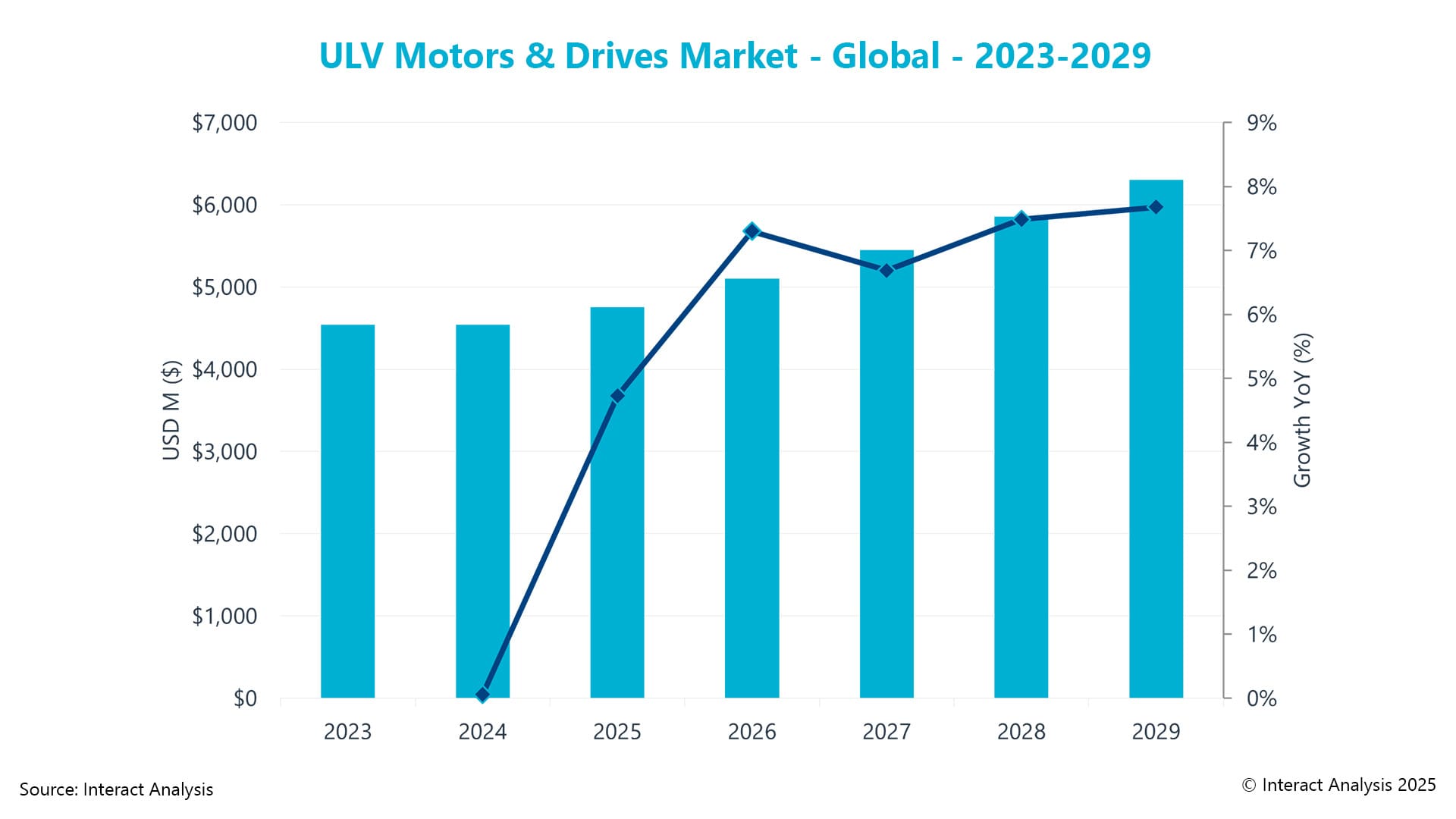
Ultra-low voltage motors and drives sector rebound in 2025: Interact Analysis
After growing at 0.1 per cent in 2024, the ultra-low voltage (ULV) motors and drives market is set for recovery in 2025, driven by mobile robotics and renewed industrial automation demand.
Read moreRelated Products
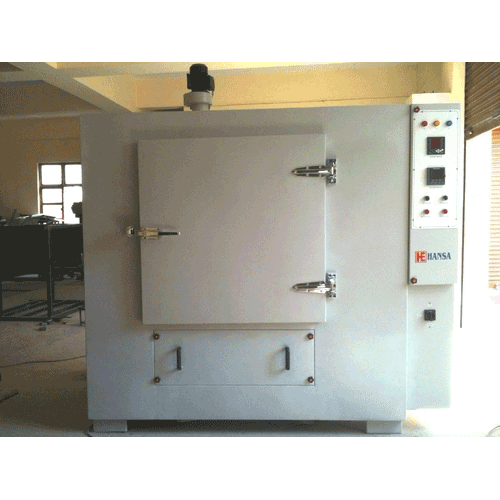
Heavy Industrial Ovens
Hansa Enterprises offers a wide range of heavy industrial ovens.
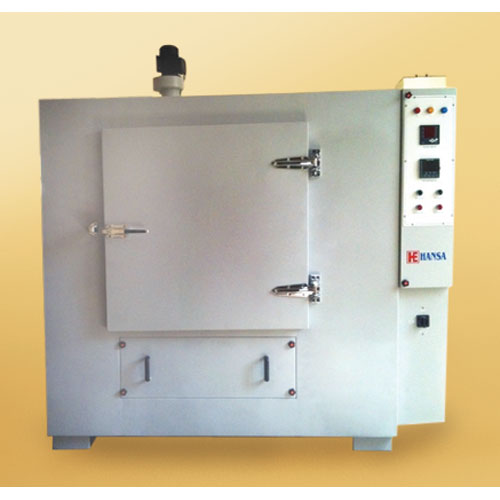
High Quality Industrial Ovens
Hansa Enterprises offers a wide range of high quality industrial ovens. Read more
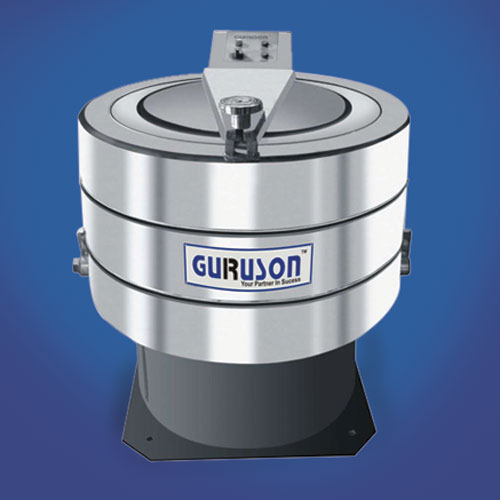
Hydro Extractor
Guruson International offers a wide range of cone hydro extractor. Read more

















